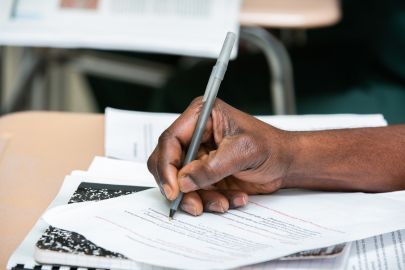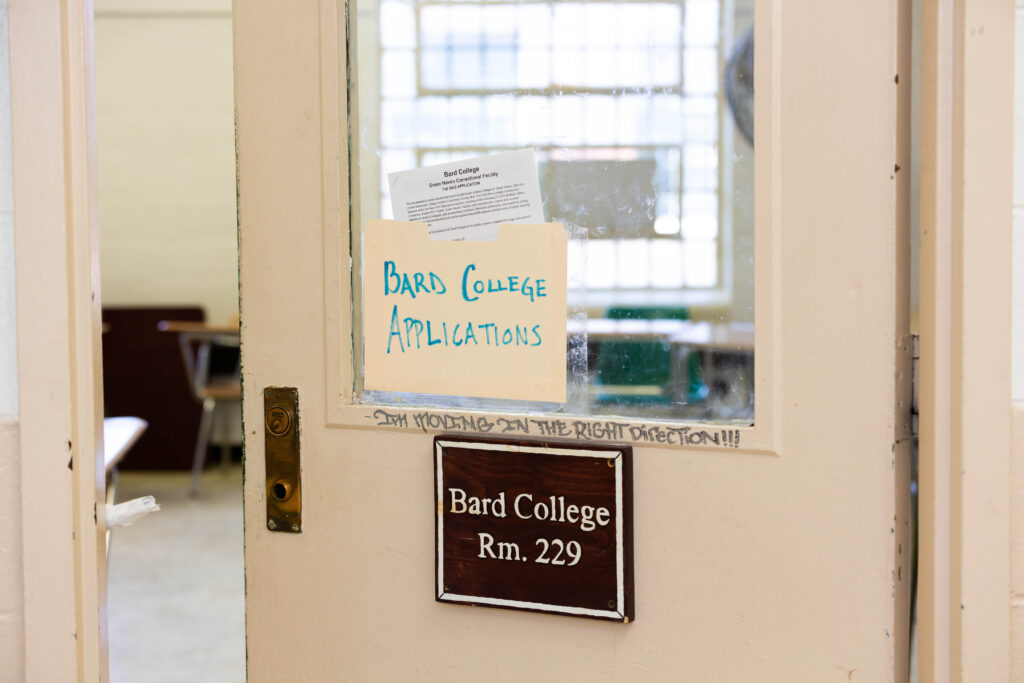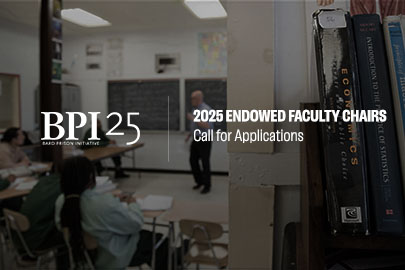This reflection by Delia Mellis ’86 Director of Program and Faculty Development originally appeared in Places Journal has been reproduced below and can found in its entirety here.
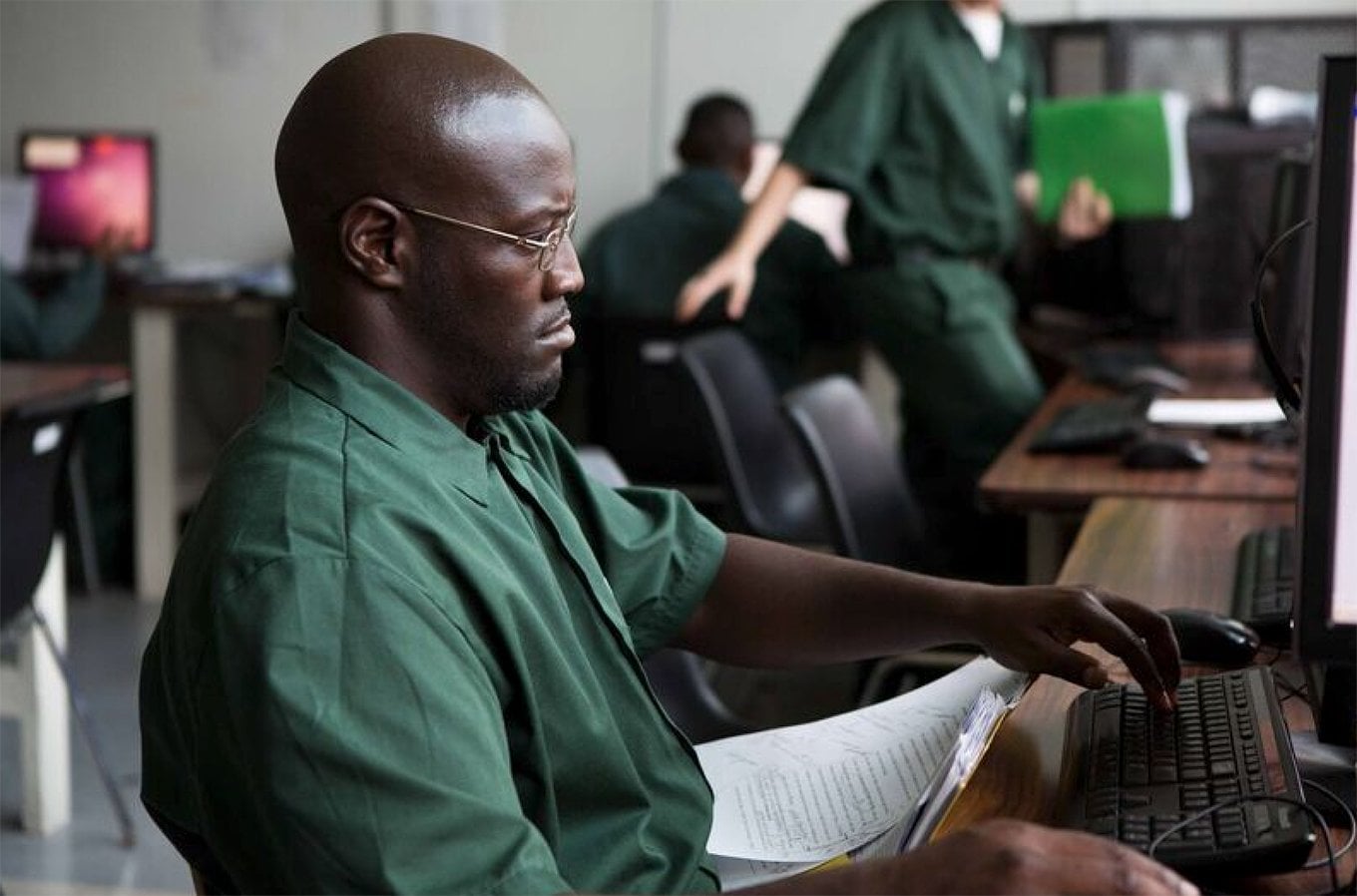
A Bard Prison Initiative student studying at the computer lab at Coxsackie Correctional Facility, a maximum-security prison in New York State. [Karen Pearson]
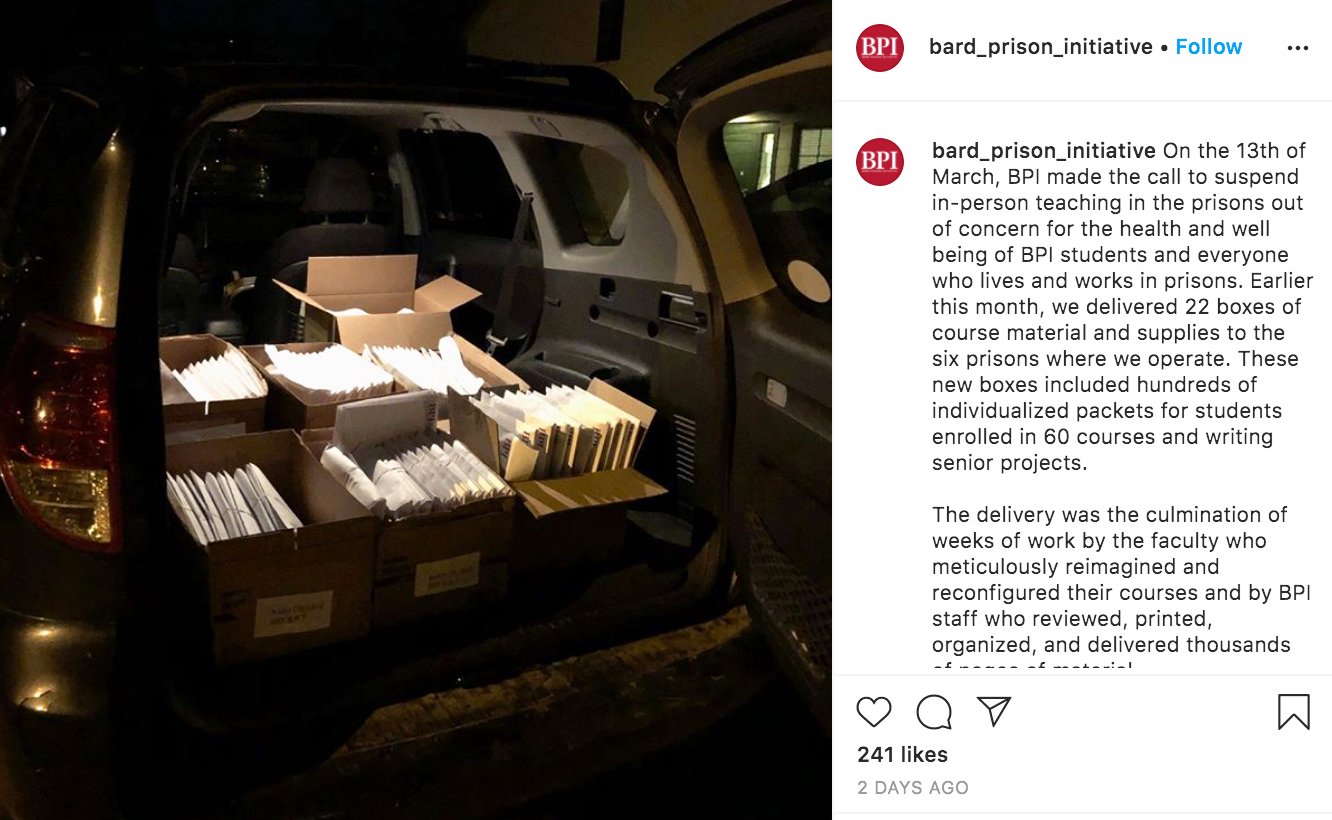
From the Instagram feed of the Bard Prison Initiative.
The Bard Prison Initiative operates in six prisons in upstate New York, offering Bard College coursework and degrees to some 300 current students. When the prisons closed to us, we were unable to pivot to online learning, because incarcerated people in New York State don’t have internet access. Nor could we expect to be able to write back and forth regularly with our students, so we couldn’t reconstruct our small, discussion-based seminars to a correspondence model. Instead, we asked our 60 professors to reconceive their courses — within two weeks — essentially as independent studies, producing materials that would guide students through the remainder of the semester on their own. The collaborative learning that is central to our pedagogy was also suddenly in question: At some of our six campuses, students might be able to confer or congregate with others, at least for a while, but we couldn’t be certain of this, either in the short or long term. So we asked professors to shape syllabi for both possibilities — what students should do if they could meet or consult with others, and what to do if they could not.
Inspired, I believe, by the commitment and intellectual energy of their students, faculty worked with tremendous focus and will to identify central goals for their courses, to draw upon the learning community that had emerged in the first six weeks of class, and to challenge and support their students to stay connected to us — and to their lives as students — through the work. Relying on thinking-through-writing assignments like reading journals and question logs, on peer and/or self-revision templates, and on imaginative work such as describing a discussion or lecture that would have happened had the class been able to convene, our faculty poured themselves into these revisions. They also sent their students concrete encouragement in the form of feedback on the work they’d seen in the weeks they had together. As a body of work, the adapted courses they devised are magnificent. Counterintuitively, what these curricula do is to reinforce the power of in-person instruction — irreplaceable, evanescent, transformative.
